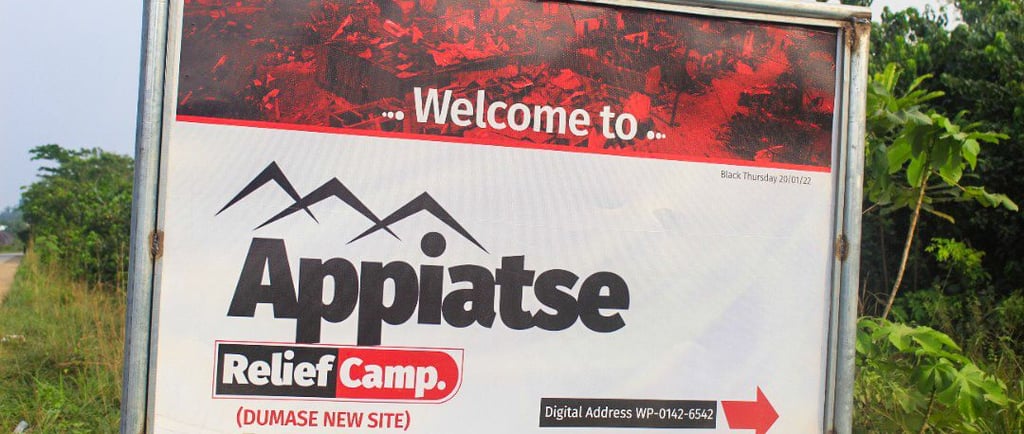The Appiatse Explosion: A Case Study in Mining Ethics and Corporate Responsibility
Originally written as part of my Value Systems and Professional Ethics coursework, October 2023
Asebi Bofah
10/7/20243 min read


On January 20, 2022, a truck carrying explosives from Maxam Ghana Limited exploded in the small community of Appiatse in Ghana's Western Region, killing 13 people and destroying countless homes. The truck, transporting ammonium nitrate and fuel oil to a mining company, collided with a motorcycle, triggering a catastrophic blast that would expose deep flaws in Ghana's mining industry oversight.
Having worked with Ghana's Minerals Commission and various mining companies, I've seen firsthand how economic development pressures can sometimes overshadow critical safety and human rights concerns. The Appiatse tragedy represents a perfect storm of regulatory failures, corporate negligence, and systemic issues that continue to plague mining operations in developing countries.
What Went Wrong?
The explosion wasn't just a tragic accident—it was a preventable disaster rooted in multiple failures:
Regulatory Non-Compliance: Maxam Ghana failed to ensure their explosive transport was supervised by a certified explosives manager, violating Ghana's Minerals and Mining Regulations. This wasn't a minor oversight—it was a fundamental breach of safety protocols designed to prevent exactly this type of catastrophe.
Lack of Public Awareness: Perhaps most heartbreaking was watching social media footage of curious residents rushing toward the accident scene to take photos and videos on their phones. These well-meaning people, unaware of the danger, became victims of the subsequent explosion—a stark reminder of how inadequate public education about industrial hazards can cost lives.
Systemic Oversight Gaps: The incident highlighted glaring weaknesses in Ghana's emergency response systems and regulatory enforcement, particularly in regions with heavy industrial activity.
The Ethical Dilemma
The Appiatse explosion raises a fundamental question that goes beyond legal compliance: How do we balance the economic benefits of mining with our ethical responsibilities to protect human life and community wellbeing?
While Maxam Ghana was ultimately fined $6 million ($1 million penalty plus $5 million in damages), several troubling questions remain:
Why wasn't Chirano Mining Company, the intended recipient of the explosives, held equally accountable for verifying their supplier's safety compliance?
Are current regulations stringent enough, and more importantly, are they being properly enforced?
How can we ensure transparency in investigations when corporate and government interests are intertwined?
Learning from OSHA: A Path Forward
In my analysis, I looked to the U.S. Occupational Safety and Health Administration (OSHA) as a model for effective government oversight. OSHA provides specific, clear guidelines for explosive transportation that have demonstrably improved workplace safety both on and off-site. Their success offers a roadmap for Ghana and other developing nations grappling with similar challenges.
The key isn't just having regulations—it's having clear, enforceable standards backed by consistent oversight and meaningful penalties that make non-compliance economically irrational.
My Recommendation: Strengthen Government Oversight
After weighing various approaches—from holding individual companies more accountable to improving community education—I believe the most effective solution is strengthening government oversight and regulation of the mining industry.
This approach works on multiple levels:
Long-term Safety Improvements: Rigorous regulations and regular audits create industry-wide safety improvements that prevent future disasters rather than just responding to them.
Accountability: Government oversight ensures that companies can't avoid responsibility through legal loopholes or financial settlements. It creates a framework where corporate social responsibility becomes legally mandated rather than voluntary.
Regulatory Clarity: Clear, stringent regulations eliminate ambiguity and make compliance straightforward, reducing accidents caused by misunderstandings or misinterpretations.
Addressing the Concerns
Critics might argue that increased government oversight requires significant resources and could slow economic development. However, the Appiatse explosion demonstrates that the cost of inadequate oversight—in human lives, property damage, and long-term community trauma—far exceeds the investment required for effective regulation.
The risk of corruption in government oversight can be mitigated through transparent systems, third-party auditing, and strict penalties for corrupt behavior.
Beyond Regulation: A Holistic Approach
While I advocate for stronger government oversight as the primary solution, it must be coupled with immediate relief efforts for affected communities. The victims of Appiatse need more than regulatory changes—they need compensation, rehabilitation, medical support, and job training to rebuild their lives.
Additionally, comprehensive community education programs are essential. Residents in mining areas need to understand the risks they face and how to respond appropriately in emergencies.
The Bigger Picture
The Appiatse explosion isn't just a Ghanaian problem—it's emblematic of challenges facing developing nations worldwide as they balance resource extraction with human safety. The solutions we develop here could serve as a model for other countries grappling with similar issues.
Mining will continue to be crucial for Ghana's economic development, but it must be done responsibly. The lives lost at Appiatse demand nothing less than a fundamental shift in how we approach mining safety and corporate accountability.
As someone who has worked in this industry, I believe we can do better. The question isn't whether we can afford to implement stronger oversight—it's whether we can afford not to.
References
Minerals and Mining (Explosives) Regulations, 2012 (L.I. 2177).
Africanews. (2022). Maxam Ghana agrees to $6M fine over truck blast that killed 13.
Gyasi, E. (2022). Government fines Maxam $6 million over the Appiatse explosion. Ghana Environment.
MyJoyonline TV. (2022). Appiatse Explosion: Moment before horrific blast near Bogoso [YouTube].
Occupational Safety and Health Administration. (2023). Surface transportation of explosives.
